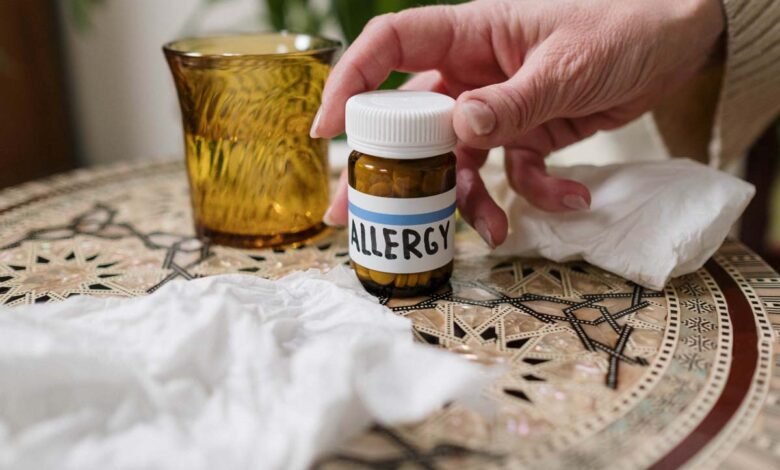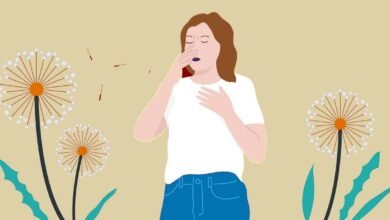9 Best Tips for Caring for Allergies in 2023


Allergies are a common health condition that affects millions of people worldwide. In 2023, allergies continue to be a prevalent issue, causing discomfort and inconvenience for many individuals. If you are one of the many people who suffer from allergies, it’s essential to know how to care for them effectively. In this article, we will explore the nine best tips for caring for allergies in 2023, including tips for prevention, management, relief at home and outdoors, managing food allergies, seeking medical help, and exploring alternative medicine options.
Understanding Allergies
Before delving into the best tips for caring for allergies, let’s first understand what allergies are. Allergies are the body’s immune system’s response to substances that it considers harmful, even though these substances may be harmless to most people. Common triggers of allergies include pollen, dust mites, pet dander, mold spores, certain foods, and insect bites. There are different types of allergies, including seasonal allergies (such as hay fever), food allergies, and environmental allergies. Symptoms of allergies can vary depending on the type of allergy and may include sneezing, runny or stuffy nose, itchy or watery eyes, coughing, wheezing, skin rash, hives, or digestive issues.
Read More: 11 Best Natural Remedies for Allergies
Tips for Preventing Allergies
Prevention is key when it comes to managing allergies. Here are some tips for preventing allergies in 2023:
- Avoiding triggers: Identify and avoid triggers that cause your allergies. For example, if you are allergic to pollen, stay indoors during high pollen counts, keep windows closed, and avoid spending time in grassy areas.
- Keeping indoor environments clean: Regularly clean your home to reduce allergens, such as dust mites, pet dander, and mold. Vacuum carpets and rugs with a vacuum cleaner equipped with a high-efficiency particulate air (HEPA) filter, wash bedding in hot water and use a dehumidifier to control humidity levels.
- Using air purifiers: Consider using air purifiers with HEPA filters in your home to help remove airborne allergens and improve indoor air quality.
- Washing hands frequently: Wash your hands frequently, especially after coming in contact with potential allergens, such as pollen, pet dander, or dust.
Wearing protective gear: If you need to be exposed to allergens, such as when gardening or cleaning, wear protective gear, such as gloves, a mask, and goggles, to reduce your exposure to allergens.
Tips for Managing Allergy Symptoms
If you are already experiencing allergy symptoms, here are some tips for managing them:
- Taking over-the-counter antihistamines: Over-the-counter antihistamines, such as loratadine, cetirizine, or fexofenadine, can help relieve symptoms like sneezing, itching, and a runny nose.
- Using nasal corticosteroids: Nasal corticosteroid sprays, such as fluticasone or mometasone, can help reduce inflammation in the nasal passages and relieve symptoms like congestion and sneezing.
- Using eye drops: Over-the-counter eye drops, such as ketotifen or naphazoline, can help relieve itchy and watery eyes caused by allergies.
- Using decongestants: Decongestant nasal sprays, such as oxymetazoline or phenylephrine, can help reduce nasal congestion caused by allergies, but should only be used for short-term relief as long-term use can lead to rebound congestion.
- Using saline nasal rinses: Saline nasal rinses, such as a neti pot or a nasal saline spray, can help flush out allergens from the nasal passages and relieve congestion.
Tips for Allergy Relief at Home
In addition to prevention and symptom management, here are some tips for allergy relief at home:
- Using allergen-proof bedding: Invest in allergen-proof bedding, including mattress covers, pillow covers, and duvet covers, to create a barrier between you and allergens like dust mites.
- Cleaning regularly: Regularly clean your home, including dusting surfaces, vacuuming carpets and rugs, and washing bedding and curtains, to reduce allergens.
- Using a vacuum with a HEPA filter: Use a vacuum cleaner with a HEPA filter to effectively trap allergens and prevent them from being released back into the air.
- Keeping windows closed: Keep windows closed, especially during high pollen counts or on windy days, to reduce the entry of outdoor allergens into your home.
- Removing shoes before entering the home: Remove your shoes before entering your home to prevent tracking in allergens from outside.
Tips for Allergy Relief Outdoors
If you need to be outdoors, here are some tips for allergy relief:
- Checking pollen counts: Check local pollen counts regularly, and try to stay indoors on days when pollen counts are high.
- Avoiding outdoor activities during high pollen counts: If possible, schedule outdoor activities for times when pollen counts are lower, such as in the evening or after a rain shower.
- Wearing sunglasses: Wearing sunglasses can help protect your eyes from airborne allergens, such as pollen, and reduce eye allergy symptoms.
Tips for Allergy Relief Outdoors
If you need to be outdoors, here are some tips for allergy relief:
- Checking pollen counts: Check local pollen counts regularly, and try to stay indoors on days when pollen counts are high.
- Avoiding outdoor activities during high pollen counts: If possible, schedule outdoor activities for times when pollen counts are lower, such as in the evening or after a rain shower.
- Wearing sunglasses: Wearing sunglasses can help protect your eyes from airborne allergens, such as pollen, and reduce eye allergy symptoms.
- Using a pollen mask: Consider wearing a pollen mask when spending time outdoors to filter out airborne allergens and prevent them from entering your respiratory system.
- Taking showers and changing clothes: After spending time outdoors, take a shower and change your clothes to remove allergens from your skin and clothing.
Tips for Allergy Relief in the Workplace
If you are prone to allergies at your workplace, here are some tips for relief:
- Keeping your workspace clean: Regularly clean your workspace, including your desk, keyboard, and other frequently touched surfaces, to reduce allergens.
- Using a HEPA air purifier: Consider using a HEPA air purifier at your desk or in your workspace to filter out airborne allergens and improve indoor air quality.
- Communicating with coworkers: If you have allergies, communicate with your coworkers about your condition and request for any necessary accommodations, such as keeping windows closed or avoiding certain triggers.
- Taking breaks: Take short breaks throughout the day to move away from your workstation and get some fresh air, if possible, to reduce prolonged exposure to allergens in the workplace.
- Keeping medications handy: Keep your allergy medications, such as antihistamines or nasal sprays, handy at your workplace for quick relief of symptoms.
Conclusion
In conclusion, managing allergies in 2023 requires a multi-faceted approach that includes prevention, symptom management, and creating allergen-free environments at home, outdoors, and in the workplace. By following the tips provided, such as avoiding allergen triggers, using medications as prescribed, keeping indoor environments clean, and taking appropriate precautions, you can effectively care for your allergies and minimize their impact on your daily life.
Read More: Strategies to Boost Immunity & Avoid Serious Allergies
FAQs
What are the most common allergy triggers in 2023?
Common allergy triggers in 2023 include pollen, dust mites, pet dander, mold spores, and certain foods.
Can I prevent allergies completely?
While it may not be possible to prevent allergies completely, taking steps to reduce exposure to allergens and managing symptoms can significantly help in alleviating allergies.
Can over-the-counter allergy medications cause side effects?
Like any medication, over-the-counter allergy medications can cause side effects in some individuals. It’s important to read and follow the instructions and talk to your healthcare provider if you have any concerns.
Is it safe to use nasal corticosteroid sprays for a long time?
Nasal corticosteroid sprays are generally safe for long-term use when used as prescribed by a healthcare provider. However, it’s important to follow the recommended dosage and talk to your healthcare provider if you have any concerns.
How often should I clean my home to reduce allergens?
Regular cleaning, including dusting surfaces, vacuuming carpets and rugs, and washing bedding and curtains, at least once a week can help reduce allergens in your home and provide relief from allergies.







